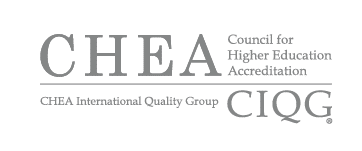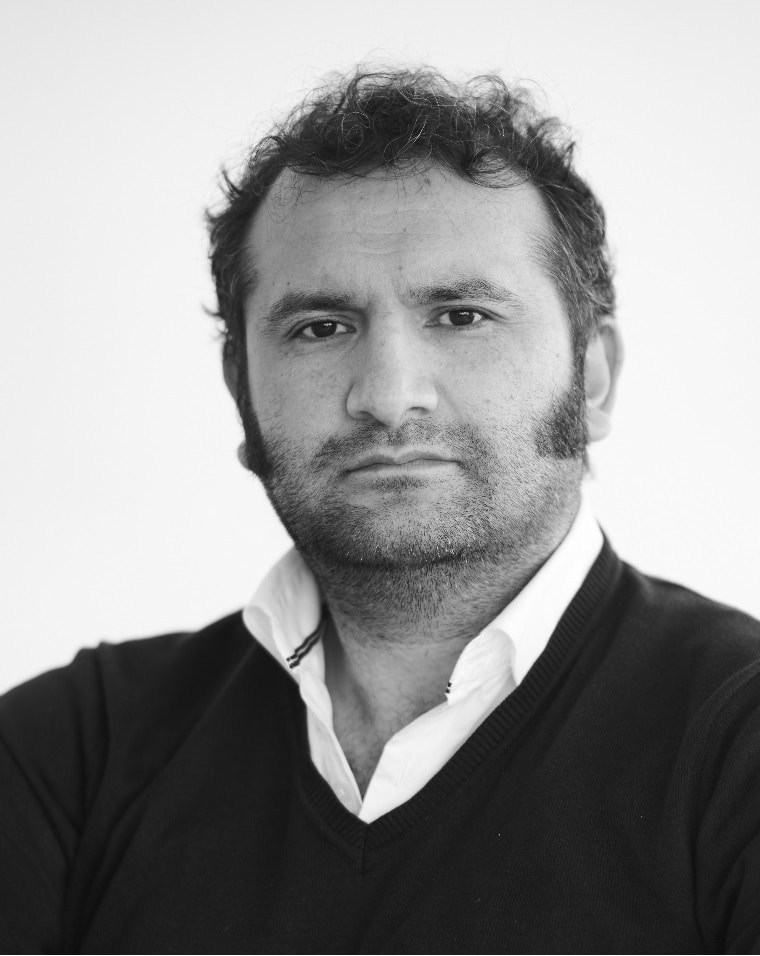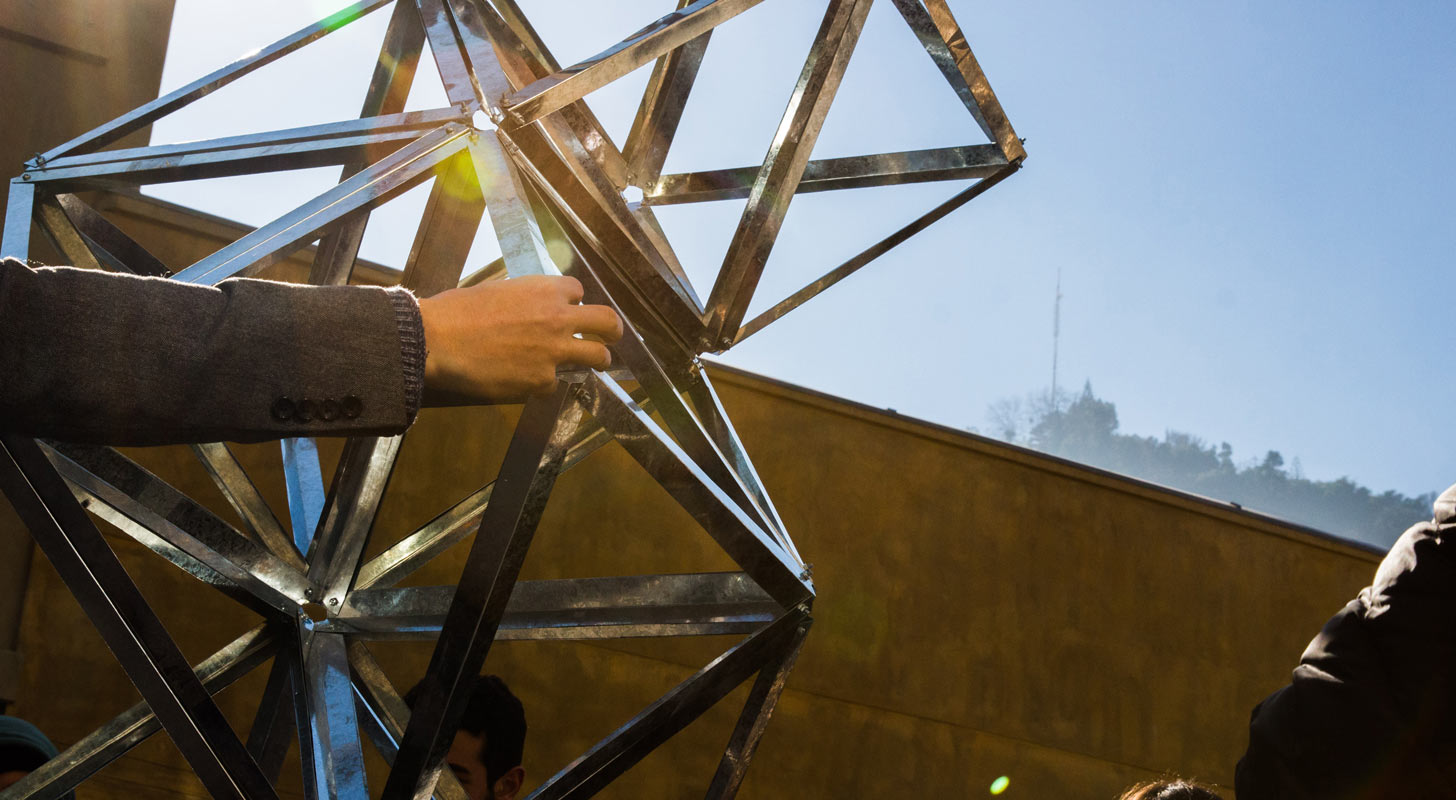
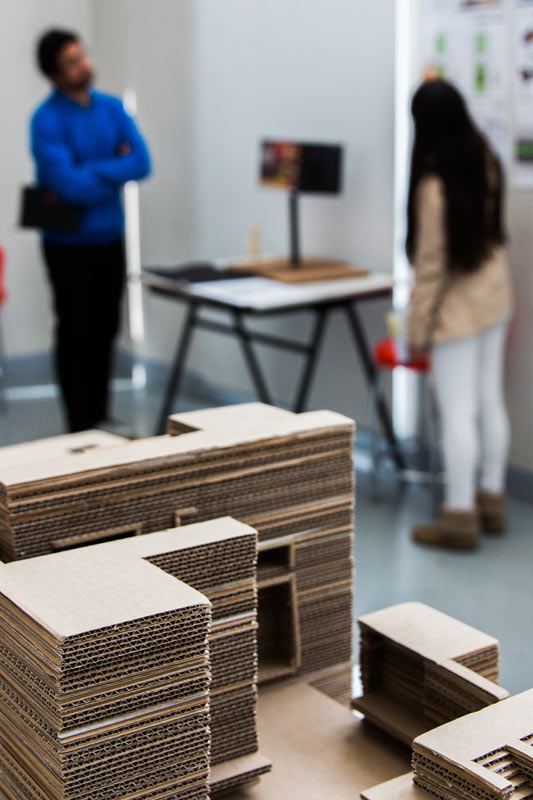
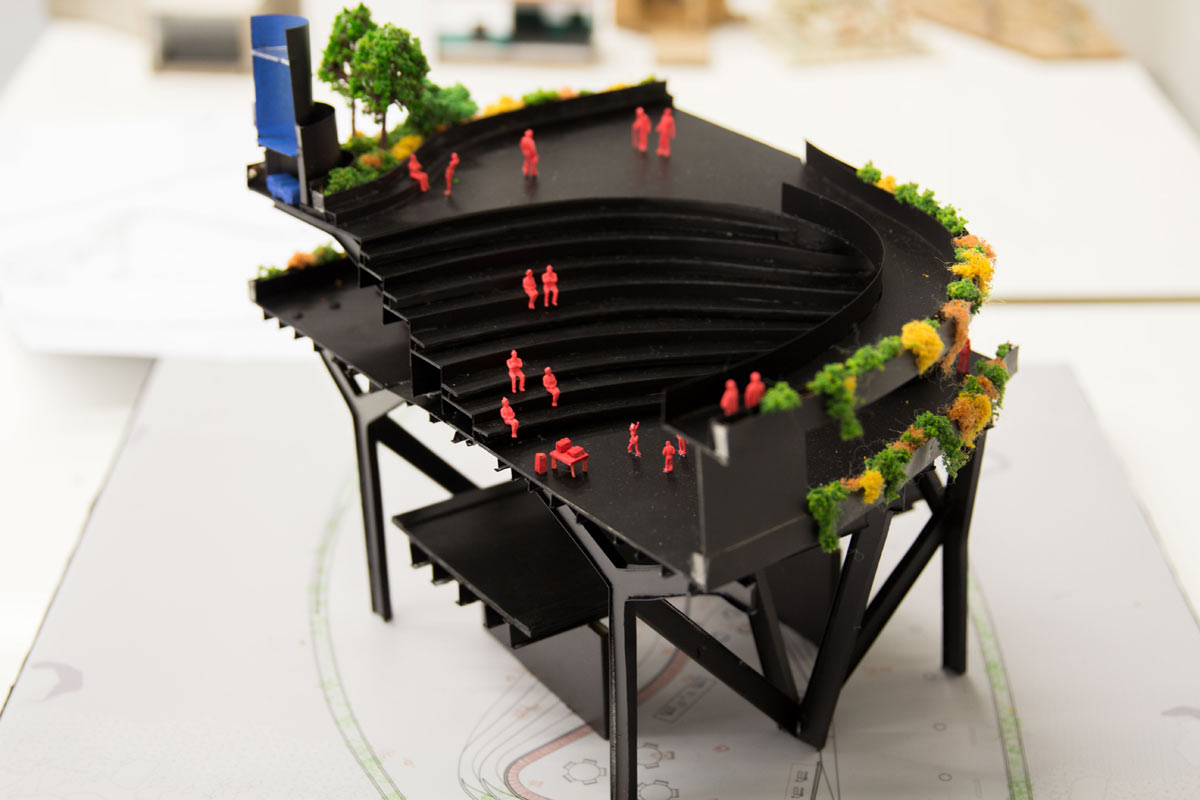
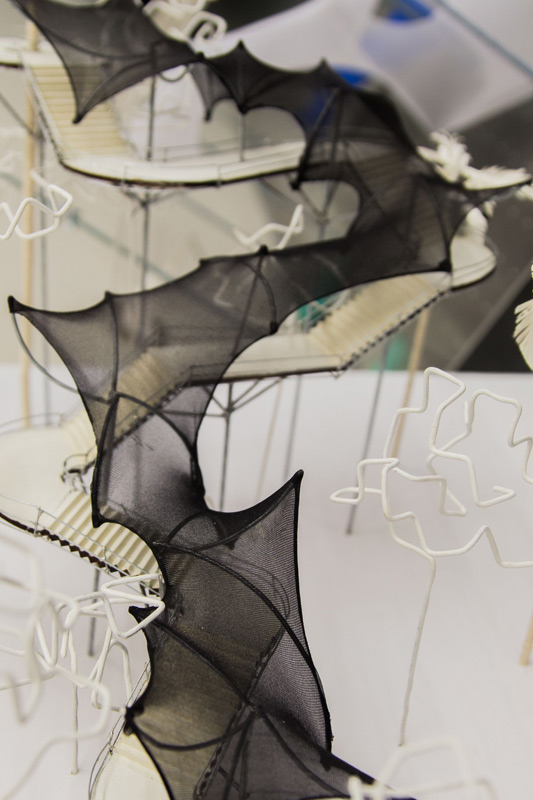
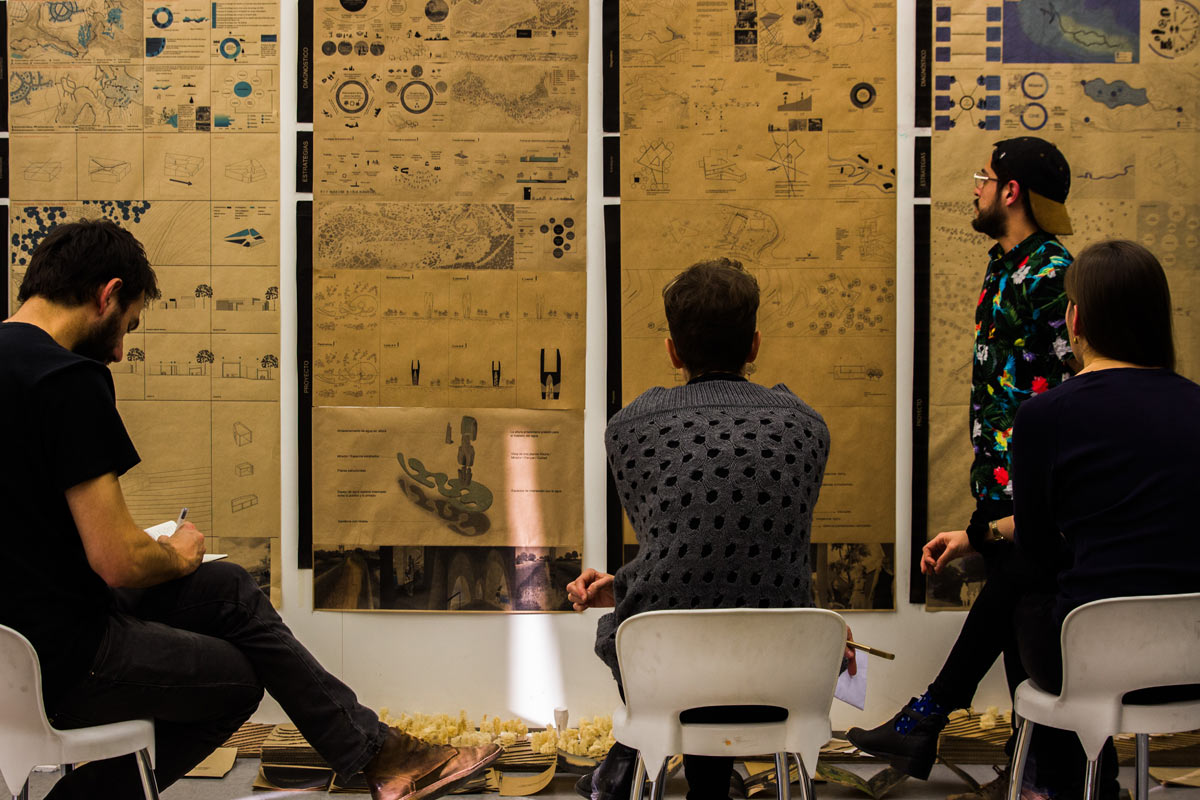

Architecture
The opportunity to change your vision of the arts, communication, city, and culture in one place: Architecture at the Creative Campus.
Degree
Bachelor's degree in Architecture
(8 semesters)
Professional Degree
Architect
(11 semesters)
Duration
5.5 years
Campuses
Santiago and Viña del Mar
Our Academics
Meet our Academics.
We are building a school where training is focused on the broad spectrum of action that architecture has and will continue to have, focusing on the design process and spatial practices.
- Occupational field
- Career plan (Decree)
- Career plan (Decree)
- Occupational field
- Graduate Profile
- Career plan (Decree)
- A pioneer training alternative in Chile focused on an integral vision of space and its components.
- Based on the models of prestigious universities worldwide, it promotes cross curricula with related careers through a common training curriculum in Arts, Design, Journalism, and Advertising.
- Offers the possibility of developing a differentiated graduate profile through interdisciplinary courses.
- A networking platform for future professionals in related careers, allowing students to graduate with a broad contact network.
- We focus our training across four important lines: Project Workshop: in this line, the project process integrates the knowledge and tools developed in future courses around spatial problems. Technology: this line is strengthened as the disciplinary axis that technically supports a project’s systems, procedures, and methods. Theory: it accounts for and builds the theoretical field of the discipline, such as tools of argumentation and coherence for the foundation and critical reflection of the project processes. Representation: experimenting with different means of communication and representation as prospective and critical project tools.
- We encourage flexibility to accommodate different disciplinary projections, focused on each student’s interests, abilities, and skills.
- The educational model of the School of Architecture of the Creative Campus focuses on the design process as a primary disciplinary tool that allows expanding the field of action of architecture and spatial practices through distinctly international interdisciplinary training.
- Agreement with scientific journal Rita, Revista Indexada de Textos Academicos, to generate relevant academic knowledge and meet and connect with other universities and professionals in the field.
- A wide range of conferences and lectures with top-level guests with a direct impact on the different courses offered by the School.
- Recognized academics with relevant professional and academic activity at a national and international level.
- The internationalization experience is possible through different modalities, workshops with international faculty, language courses, study trips, intensive programs, and exchanges in prestigious institutions worldwide.
- Professionals with transversal competencies and capable of integrating knowledge and generating innovation.
- Architects with a spirit of creativity, entrepreneurship, and self-management.
- Bilingual and able to understand and communicate in English at the b2 level, according to the Common European Framework of Reference.
- Capable of solving problems through experimentation.
- With broad mastery of new conceptual, methodological, and productive tools.
- Committed to social and environmental responsibility.
Graduates of the Architecture program at Universidad Andrés Bello will be able to work in different organizations within society, with an emphasis on self-management; exploring and acting in different scenarios; addressing socio-spatial problems of tradition and contemporaneity, and participating in projects of multiple complexities, ranging from the object to the territory in both physical and virtual environments.
Graduates of the Architecture program at Universidad Andrés Bello are professionals who, with an integrated approach to the discipline, materialize projects and studies that respond to the needs of habitation, addressing socio-spatial problems of tradition and contemporaneity that go from the object to the territory in both physical and virtual environments. They use creative disciplines as a tool to manage knowledge at a local and global level, developing proposals and projects from an interdisciplinary perspective.
Our Architecture graduates master methodologies, tools, and project processes, critically and creatively, in changing environments to respond to individual, community, or production needs.
The curriculum of the Architecture program at Universidad Andrés Bello organizes its Learning Outcomes in the following Action Areas:
I. Field of Action: Interdisciplinary Culture Projects
RdA 1.- Integrate and synthesize the main phenomena, discussions, conflicts, and changes that determine today’s contemporary cultural reflection in different fields of knowledge.
RdA2.- Use management tools to evaluate the generation of sustainable, innovative proposals in developing projects and enterprises.
RdA 3.- Create procedures and products through conceptual and technical resources to work in and integrate disciplinary and interdisciplinary contexts.
RdA 4.- Design projects based on interdisciplinary issues that contribute to responding to complex phenomena in specific contexts.
II. Field of action: Project Processes:
RdA1.- Develop project methodologies integrating theoretical and practical dimensions for researching variables in interdisciplinary and collaborative contexts.
RdA2.- Construct analytical, critical, and propositive arguments for the design of creative processes and projects.
RdA3.- Develop technological solutions to materialize processes and projects using different tools and methods.
III. Scope of action: General Education and English
RdA 1: Develop critical thinking through argumentation, using oral and written language appropriate to the academic and professional environment, and using a method based on criteria, facts, and evidence.
RdA 2: Relate academic training to the local environment from the principle of social responsibility, considering the ethical dimension of daily practices and everyday speech in professional practice.
RdA 3: Develop research projects with their respective ethical considerations, according to quantitative and qualitative methodological approaches recognized by their disciplinary area, effectively utilizing information technologies.
RdA 4: Develop communication skills in English to function in daily, work, and academic contexts.
Learn about the Curriculum of the Architecture Career, belonging to the School of Architecture of the School of Architecture, Arts, Design, and Communications.
Download the decree here



